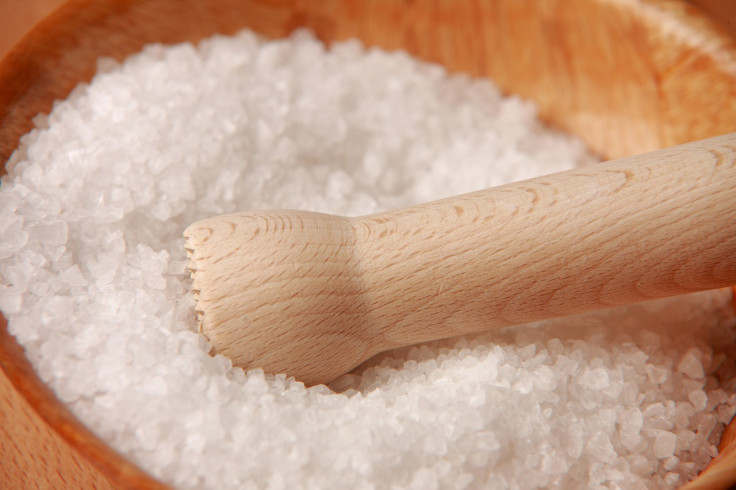Got Hypertension? Study Says Taking 1 Teaspoon Less Salt Daily Is As Effective As Pressure Medications

Patients with hypertension are often advised to restrict their salt intake. But can a low-sodium diet work like a drug? Researchers have found that reducing salt intake by a teaspoon daily can be as effective as the use of blood pressure medication.
Hypertension is a condition in which pressure in the arteries is too high (130/80 millimeters of mercury or higher). Around 1 billion people worldwide have hypertension, and it accounts for about half of all heart disease- and stroke-related deaths in the world.
A combination of several factors, including age, lack of physical activity, unhealthy diet, tobacco use, obesity and stress, can elevate the risk of developing high blood pressure. High sodium in the diet is a risk factor. The American Heart Association recommends the use of salt below 1,500 milligrams per day.
By lowering salt intake, nearly everyone, including those on medications for hypertension, can reduce their blood pressure, according to the researchers of a new study, published in Jama Network. Participants who cut down on salt by a teaspoon per day showed a decline in systolic blood pressure by about six millimeters of mercury (mm Hg), a result that was comparable to the use of blood pressure drugs.
The findings were presented at the American Heart Association Scientific Sessions 2023 in Philadelphia.
"This is the first study to show that people who are already on blood pressure medication can lower their blood pressure even more by limiting sodium," said co-principal investigator Norrina Allen, a professor of preventive medicine at Northwestern University's Feinberg School of Medicine. "We found that 70-75% of all people, regardless of whether they are already on blood pressure medications or not, are likely to see a reduction in their blood pressure if they lower the sodium in their diet."
Researchers allocated 213 participants between the ages of 50 and 70 to either a high-sodium diet (2,200 mg per day in addition to their usual diet) or a low-sodium diet (500 mg in total per day) for one week. The participants then switched to the opposite diet for one week. Their blood pressures were monitored after the end of each study.
"Among 213 participants, systolic blood pressure was significantly lowered by 7 to 8 mm Hg when they ate the low-sodium diet compared with the high-sodium diet, and by 6 mm Hg compared with their usual diet. Overall, 72% of participants experienced a lowering of their systolic blood pressure on the low-sodium diet compared with their usual diet," researchers said in a news release.
The team noted that the blood pressure-lowering effect could be seen just by adjusting the dietary sodium of the participants for a week.
"The fact that blood pressure dropped so significantly in just one week and was well tolerated is important and emphasizes the potential public health impact of dietary sodium reduction in the population, given that high blood pressure is such a huge health issue worldwide," said co-investigator Cora Lewis, a professor of Medicine at the University of Alabama in Birmingham.



























